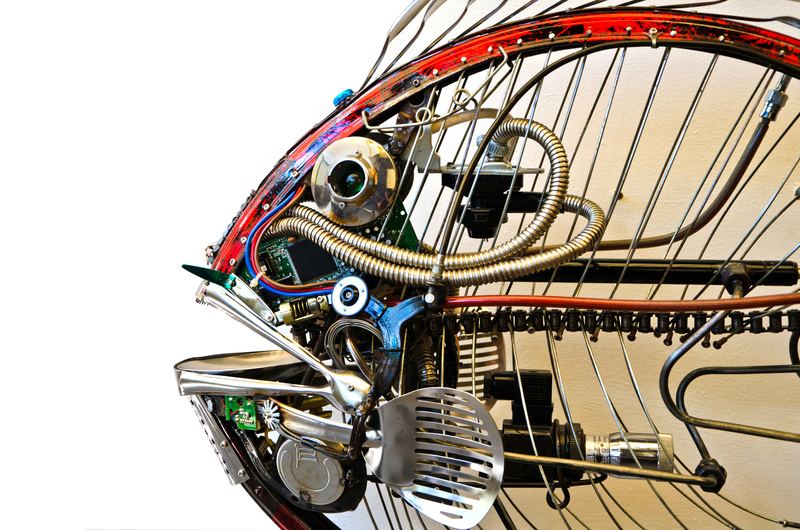Green Methods for Getting Rid of Old Cookware
In an era where sustainability and eco-conscious living are becoming increasingly important, many of us are left wondering: What do you do with your old pots, pans, and baking sheets? Throwing them in the trash is wasteful and environmentally harmful, but what are the best options for disposing of old cookware in green, responsible ways? In this comprehensive guide, we'll cover a range of eco-friendly methods for getting rid of old cookware, ensuring your kitchen clean-up is as sustainable as possible.

Why Proper Cookware Disposal Matters
Old cookware often contains materials like metal, plastic, non-stick coatings, or even glass that can take centuries to decompose in landfills. Non-stick coatings such as Teflon may release harmful chemicals when incinerated. Recycling cookware or finding ways to repurpose it helps reduce landfill waste, saves resources, and minimizes environmental impact. To adopt a green lifestyle, it is crucial to consider eco-friendly cookware disposal options.
How to Evaluate Your Old Cookware
Not all old cookware is necessarily at the end of its life. Some pieces can be refurbished or upcycled, while others may be fit for recycling or donation. Before choosing a green method for getting rid of cookware, inspect your items for:
- Material Type: Is it stainless steel, aluminum, cast iron, copper, ceramic, or non-stick?
- Condition: Any cracks, flakes, excessive wear, or warping?
- Brand and Collectibility: Some vintage or high-end cookware can be repurposed or resold rather than thrown away.
- Cookware Sets: Partial or mismatched sets might still be valuable to others.
1. Donate Your Functional Cookware
If your pots, pans, and bakeware are still in usable condition, donating them is a fantastic way to divert them from the landfill and help others in need. Consider:
- Local Charities and Thrift Shops: Goodwill, Salvation Army, local shelters, and churches often welcome gently used cookware.
- Community Kitchens or Soup Kitchens: Many kitchens operate on donations and appreciate functional cookware.
- Refugee or Family Support Services: Organizations aiding resettlement or families in transition often need kitchen basics.
- Online Communities: Neighborhood groups and platforms like Freecycle or Buy Nothing can connect your cookware with people nearby.
2. Repurpose and Upcycle Old Cookware
Before sending your cookware off, consider repurposing or upcycling it into something new and useful. Old cookware can be transformed in surprisingly creative ways:
- Planters: Turn old pots or colanders into quirky planters for herbs or flowers - excellent for indoor or outdoor gardens.
- Organizers: Deep pans or baking trays can serve as drawers, desk organizers, or trays for small items.
- Bird Feeders: Hanging skillet, lid, or colander makes a unique birdfeeder for your backyard.
- Wall Art: Arrange interesting or vintage pans as a decorative display in your kitchen or garden shed.
- Candle Holders: Use small pots or muffin tins as rustic candle holders or centerpieces.
Repurposing not only reduces waste but also adds character to your home and encourages sustainable living practices.
3. Find Local Scrap Metal Recyclers
Most cookware is manufactured from recyclable metals such as aluminum, stainless steel, iron, or copper. However, your local curbside recycling service may not accept these due to size, coatings, or mixed materials. Instead, follow these steps:
- Contact Scrap Yards or Metal Recyclers: Search for scrap yards or recycling centers in your area and ask if they accept cookware. Most metal recyclers are happy to take pots and pans, provided they're mostly metal.
- Remove Non-Metal Parts: Take off plastic handles, glass lids, or any non-metal attachments to ensure efficient recycling.
- Group by Material: Separate stainless steel, cast iron, and aluminum cookware if possible - some yards pay by type or offer easier processing.
- Check for Special Recycling Days: Keep an eye out for community recycling days that may accept bulky items or specialty kitchenware.
Green cookware recycling helps recover valuable metals and reduces the demand for new raw materials, lessening the environmental footprint of your household.
4. Explore Manufacturer Take-Back Programs
Several cookware brands are ramping up their sustainability initiatives and offer take-back or recycling programs for old pots and pans:
- Caraway: Their "Recycling Program" accepts used cookware from any brand. They arrange shipping and proper recycling or donation of your old pieces.
- GreenPan: Some eco-friendly brands encourage you to return old non-stick pans for proper recycling.
- Le Creuset: Occasionally offers trade-in or recycling programs for cast iron products.
- TerraCycle: Offers box programs for difficult-to-recycle items that may include kitchenware (check availability in your region).
Check your cookware manufacturer's website for details or reach out to customer service to ask about their environmental stewardship efforts. New programs are constantly emerging as more companies focus on green solutions for kitchenware disposal.
5. Non-Stick and Ceramic Cookware: Special Considerations
Cookware with non-stick (PTFE or ceramic) coatings or glass inserts may require specialized disposal:
- Check with Local Recyclers: Some metal recyclers can separate coatings from base metals; others may not accept non-stick surfaces due to chemical concerns.
- TerraCycle Programs: For hard-to-recycle materials, TerraCycle's kitchenware boxes can be a responsible solution, although this comes with a cost.
- Never Incinerate: Avoid burning non-stick cookware as it can release toxic fumes.
If all else fails, keep an eye out for community hazardous waste collection events, which sometimes accept coated cookware for responsible handling.
6. Sell or Swap Old Cookware Online
You might be surprised--used cookware, even single pots or mismatched pans, can have value! Thanks to online platforms, you can extend the lifecycle of kitchen items by:
- Listing on Marketplaces: eBay, Facebook Marketplace, OfferUp, and Craigslist are excellent places to find buyers for used (or vintage) cookware.
- Specialized Groups: Join Facebook groups or Reddit communities dedicated to cookware enthusiasts or vintage kitchenware collectors.
- Community Swaps: Organize or participate in neighborhood swap meets--your pan may be exactly what someone else needs.
Selling or swapping helps reduce demand for new products and gives your old kitchen utensils a second chance at life.
7. Compost Wooden Utensils and Handles
If your cookware features removable wooden handles or you have old wooden spoons, consider composting them:
- Check Finish: Only compost unfinished, untreated wood. Painted or heavily varnished wood should go to landfill or recycling if accepted.
- Break Down: Chop wood into smaller pieces to speed up decomposition in your compost bin.
This method diverts wood from the waste stream and enriches your soil--yet another green way to dispose of kitchen tools.
8. Creative Community Projects
Many schools, art centers, and makerspaces love old cookware for creative reuses--think percussion classrooms, garden sculptures, or craft projects. Reach out to:
- Local art programs or makerspaces for potential donation.
- Community centers for classes in gardening, crafts, or upcycling.
- Children's workshops--old pots make excellent drum kits or painting palettes.
You'll be amazed at the inventive uses people find for "junk" cookware!
What About Damaged or Unusable Cookware?
Sometimes, pots and pans are simply beyond saving--rusted, warped, chipped, or missing parts. Here's how to deal with truly unusable cookware in a green manner:
- Separate Materials: Disassemble as much as possible--remove glass lids, plastic, or rubber parts from base metals.
- Contact Local Recycling Services: Some municipalities have drop-off days or specific guidance for handling mixed-material goods.
- Use TerraCycle or Paid Recycling: If no local solution exists, consider a paid recycling service focused on hard-to-recycle kitchen products.
- Avoid Landfill: Only use the landfill as a last resort, and only for non-recyclable residues.
Tips for Purchasing Sustainable Cookware in the Future
Proper disposal is only half the story. Next time you shop for cookware, keep sustainability in mind:
- Opt for Durable Materials: Stainless steel, cast iron, and quality ceramics have long lifespans and are easily recyclable.
- Avoid Disposable Non-Stick Pans: Invest in quality non-stick or opt for naturally nonstick surfaces such as seasoned cast iron.
- Look for Recycled Content: Some brands use recycled metals in manufacturing.
- Avoid Excess Packaging: Choose products with minimal or recyclable packaging.
- Support Green Brands: Patronize brands that offer take-back or recycling programs for end-of-life products.
The Environmental Impact of Throwing Away Cookware
Discarded cookware, especially items containing non-stick coatings or mixed materials, sits in landfills for decades or longer. The decomposition process can leach toxic substances into soil and water, while wasted metals represent a significant loss of resources. According to environmental experts, recycling one ton of aluminum saves up to 14,000 kWh of energy compared to producing new aluminum, highlighting the significant impact of proper cookware recycling.

Green Cookware Disposal: Frequently Asked Questions
Can I put old pans in my curbside recycling bin?
Usually, no--most curbside recycling programs do not accept large metal items or mixed materials like non-stick coatings. Use a local scrap metal recycler instead.
Is it okay to donate scratched or used non-stick pans?
Only if the coating is intact and safe to use. Severely scratched non-stick pans may be hazardous to health and are best recycled or properly disposed of.
How do I recycle glass lids from pots?
Recycle glass lids with other household glass items, if your local system accepts them. Tempered glass may require special handling--ask your recycler for advice.
What about bakeware made of ceramic or Pyrex?
Ceramic and Pyrex glass cannot be recycled with regular glass due to their different melting points. Call a specialty recycling center or consider creative re-use.
Conclusion: Make Your Kitchen Clean-Up Count
A commitment to sustainable living starts in your kitchen. By embracing these green methods for disposing of cookware--from recycling and donation to upcycling and creative community projects--you help reduce landfill waste, conserve resources, and inspire others to make eco-friendly choices in their own homes. As you replace your kitchen tools, remember that every pan, pot, and utensil deserves a second chance--for the planet's sake and for generations to come.
Ready to start your green cookware clean-up? Look for local recycling centers, donation opportunities, or unleash your creativity with upcycling projects today--and share your tips about eco-friendly cookware disposal with friends and family!
A greener kitchen means a greener planet. Dispose thoughtfully, and cook sustainably!
